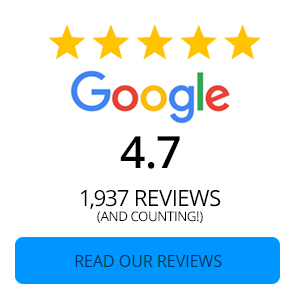Nowadays, it seems like we're always managing our money in terms of who needs to be paid first. At the end of the day, we're typically placing our own financial goals to the side in order to stay ahead of our other financial responsibilities. However, it shouldn't be like this! One of the key principles of personal finance is to "pay yourself first," and we're here to help you understand why this simple habit can be life-changing for your wallet.
What Does It Mean?
Simply put, paying yourself first is when you set aside money for your financial goals before you spend money. We're looking at you, online shopping - you can wait! Most consumers are used to paying for needs first, spending on wants second, and then only saving the money that's left over. Instead, change your mindset and your habits: pay yourself first, even before you pay your bills!
Why Is It Important?
When you make your financial goals a priority, it allows you to create healthy financial habits. You can make those goals whatever you choose, whether they be saving $50 every paycheck, $500 a month, or even $50,000 for your first house. These goals can be achieved through a savings plan, and when you implement the concept of paying yourself, you are substantially contributing towards making those goals a reality.
Pro Tip: Save often, but most importantly save consistently. That is the key to growing your financial resources.
How To Do It
Of course, savings and the paying yourself first concept will look different for everyone. Paying yourself first doesn't have to mean suddenly saving your entire paycheck or investing in multiple different stocks. If saving can be hard for you, or if you haven't really started, there's no need to panic.
We've gathered a few suggestions that will get you started down the right path:
Pay Yourself Like You Pay a Bill
When you're planning your budget and managing your expenses, you always make sure to take your bills into account. We automatically give them a major role in our overall financial health. So, what would happen if you treated your savings in the same way? Make your daily, weekly, or monthly contribution to your savings a major player in your budget, and consider those contributions as deadlines. Miss the deadline, and you're cutting yourself off from your financial goals. Instead of treating savings as a secondary thought, place it among your top financial priorities. Just watch how far you'll go!Pay Off Debt
While savings should always be a priority, never overlook your debt, especially if you have high-interest debt. If that's the case, always focus on paying that off first. The amount you are paying in interest severely limits your ability to make worthwhile, consistent contributions to your savings. Once you have eliminated your debt, don't stop making those regular payments. The only difference: place that money into savings and retirement accounts! You're already paying that amount anyway, the only difference is that money now comes right back to you.Keep Your Money In Separate Accounts
Having more than one bank account is a great way to organize money separately for each of your goals. You can assign one goal per account and easily track your progress, instead of trying to calculate what percentages of your overall savings will go toward certain goals. This is also a good idea if you have a habit of spending money you shouldn't (we're looking at you, Amazon Cart). If you're tempted to spend, putting your savings in a separate account makes it harder to access. Consider it a loving way of keeping your future self in check.
Start Small
Creating a long-term, successful plan for saving can seem like you're facing Mount Everest, but just remember that nothing happens overnight. Stay focused and keep your financial goals in mind to inspire you along the way. Whether it's 5 cents you found between your couch cushions, $5, or $500, every little bit you can put aside is an investment in yourself, and that's the best investment you can make. Now go turn those goals into reality!

